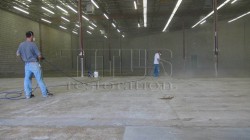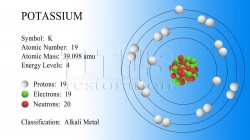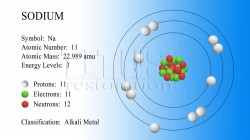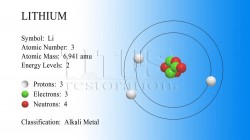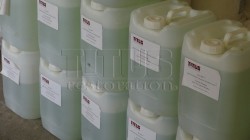In this page we will discus the reasons why Lithium Densifier is the concrete sealer of choice for Titus Restoration. Our 2 penetrating concrete sealer products are:
Titus Concrete Densifier | The Hardener, Dust-Proofer, Concrete Sealing System
Download : Data Sheet | MSDS
Titus Concrete Densifier PLUS
Download : Data Sheet | MSDS
What you need to know about choosing concrete densifiers – it does make a difference!
Concrete sealer products vary in molecular structure and reaction time. Concrete densifiers with a higher pH will react quicker with the concrete slab than those with a lower pH. The quick reaction is due to a larger pH differential or less penetration due larger molecule will limit the penetrating effect of the silicate.
A silicate densifier with a pH closer to that type of the concrete will have a slower reaction and penetrate better.
A silicate densifier with a smaller molecular size will penetrate better than one with a larger molecular size.
- Application
Higher pH densifiers react more quickly with the lime in the concrete and thus have less time to dwell and penetrate deep into the concrete.
A lower pH densifier will have a slower reaction time with the lime in the concrete and this will enhance its ability to dwell and penetrate the slab.
The pH scale is logarithmic. For example, pH 6 is ten times more acidic than pH 7 and 100 times (10 times 10) more acidic than pH 5. In addition, pH 10 is ten times more alkaline than pH 9 and 100 times (10 times 10) more alkaline than pH 8. A pH of 13 is 1 million times more alkaline than a pH of 7.
Sodium silicate is 100,000,000 (one hundred billion) times more alkaline than magnesium fluorosilicate (which is in fact acid and contains sulfuricacid). Sodium silicate, also known as waterglass, is water soluable.
|
COMPARISON OF SILICATE DENSIFIER pH TO CONCRETE pH |
||
|
Material |
pH |
Difference in Alkalinity |
| Sodium Silicate |
13.6 |
5,990,000 |
| Siliconate |
13.0 |
1,000,000 |
| Potassium Silicate |
11.7 |
70,000 |
| Lithium |
10.8 |
2,000 |
| Magnesium Florosilicate |
2.4 |
600,000,000 |
Molecular Size of Densifier Alkali Metals Used in Silicate Concrete Densifiers
Take a look at the sizes by atomic number of the alkali metals listed below.
- Potassium
- Sodium
- Lithium
The smaller the alkali metal and the closer its pH to that kind of concrete, the better the penetration of the alkali metal into the concrete.
See the diagrams from Yinon Bentor’s website CHEMICALELEMENTS credited here in and check out the links for Alkali Metals or click on the links below to see a diagram of each of the densifer alkali metals Lithium, Sodium, and Potassium that are used as carriers for silicate densifiers.
Titus Concrete Densifier is a concrete hardener, dust-proofer, sealer and is V.O.C. compliant, clear, odorless, water-based, and environmentally safe of our Titus High Performance Line.
- Titus HP²™ Densifier
Titus Concrete Densifier is unique. While providing protection, comparable to that of a high- end penetrating water repellent sealer, it protects surfaces from water and erosion-causing water-carried salts with a chloride ion screen providing; seals micro-channels resulting in harder, stronger, dust-proof, abrasion-resistant, and becomes easier to maintain.

